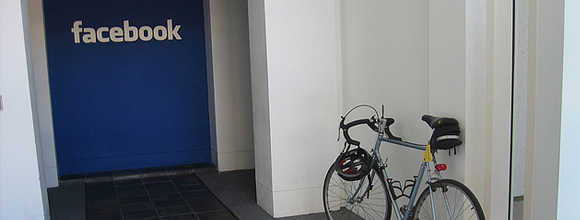By nature human beings are creatures who crave social interaction. We are forming relationships with friends and networking deeper with colleagues every passing day. The evolution from physical to digital has been an interesting one and is still ongoing. We have seen many social networks rise and fall in just a few short years.
Building a credible website community from scratch takes a lot of dedication. Even more so than dedication is the requirement for patience. Networks take time to build and will require daily care in order to mature into a strong web entity.
Why Social Networks?

An interesting comparison relates to the growth of the Internet and how lacking our society is on trust. Many people will connect with strangers via social profiles yet wouldn’t even pass a “hello” onto the very same person had they met physically.
Websites support this node system because a large user base finds the services appealing. Having a direct connection to a large list of people you may talk with at any given point is priceless. Couple this theory with a beautiful user interface and you’ve got a well-oiled social machine.

We are evolving as a species, and thus finding more enjoyment in creating and interacting with networks. Connecting with other people has proven to show boosts in overall mood and general outlook on life. With so many of us busy at work it’s hard to find time to connect. The Internet is a medium which fills the role very well, almost to the point of dependence.
What is Community Essence?
Ideas will pop up from time to time that may change your way of thinking. Imagining a community website as a series of interconnected nodes helps to demonstrate a larger point among all social networks. The essence behind these connections is to grow and share information in ways previously unavailable.
What keeps visitors coming back is the strong surrounding user base and like-minded ideals. You’ll attract more visitors if you have a goal or interest in mind. It isn’t common to see active networks of people without a common goal or interest at heart.

Offer tools to your visitors which they can’t find elsewhere. For example, if you were to develop a Twitter-themed network you may place profile information from each user’s Twitter account. You could also implement the option for an OAuth connection between each user profile and their Twitter account. This is a small scale example but can work in all niches.
Solid Programming Techniques
Community will build much quicker with a good foundation. When building a web application keep all file structures and database tables neatly organized. There have been many situations in the past where a startup network won’t have enough computation power to load the site after a large influx of users. Servers crash and the site is rendered unusable – this can either cause your current base to flee or stir up some interest in the media.
If you aren’t as strong with programming it may be wise to partner up with a close friend or acquaintance. Many web frameworks are available to ease the workload on projects where intensive function libraries are required. This will also free your mind to work on other strategies in design and marketing.

However not all of us know web developers, never mind top notch professionals. The learning curve for PHP/MySQL or Ruby on Rails is steep for the initial 2-4 weeks. After a few practice applications and spending some time in the development environment things get a lot easier. If you find yourself curious about development set time aside to learn. You don’t need to depend on anybody else for updates and you hold full control of the work pace.
Don’t Leave your Members in the Dark
Members of your website are like fans to your brand. When you have people not only registering an account but also returning to your site daily/weekly it’s fairly obvious you’ve built something great. There is a level of trust placed between users and website administrators. If this is broken it can spell the downfall of any social network.

A recent example is the release of Digg v4. Closing in to the release date many top Diggers in the community were fighting the changes. The Digg staff wasn’t updating much on the blog aside from a small beta program (for those who got invited). The launch was very sudden and came with more down time than I’ve ever seen at Digg.
Since the launch many now ex-diggers have fled to other networks such as Reddit. The community has gone through a major collapse, although Rose and developers plan to add more functionality and fix issues over time. The new design has come a long way since first release. This community still hasn’t fully bounced back from the incident and it’s difficult to predict if Digg will ever return to king status.
Be Original
Original ideas are hard to come by. These days it seems anybody with sub-par development skills is launching the next hot app. These will die of faster than most and may earn the creator some small revenue. But money should not be the main purpose of launching a new community.

It’s perfectly acceptable to borrow and innovate off others’ ideas. This has been happening for centuries and will continue to govern laws of creativity well into the future. It’s a difficult transition, but learning how to adapt and inject your own ideas is a science which can only be learned through practice.
These tips should give you a good idea of how communities develop. Over time you can track analytics and learn about your userbase from an objective perspective. It’s a very rewarding experience to provide a small mass with services they truly value.
There are plenty more tips online for marketing and promotion but the best way to fight curiosity is diving head-first into building a community. Take away as many lessons as possible from your initial launches and apply these to future projects. When it comes to social networking it seems there is always room to grow.
Comments
Post a Comment